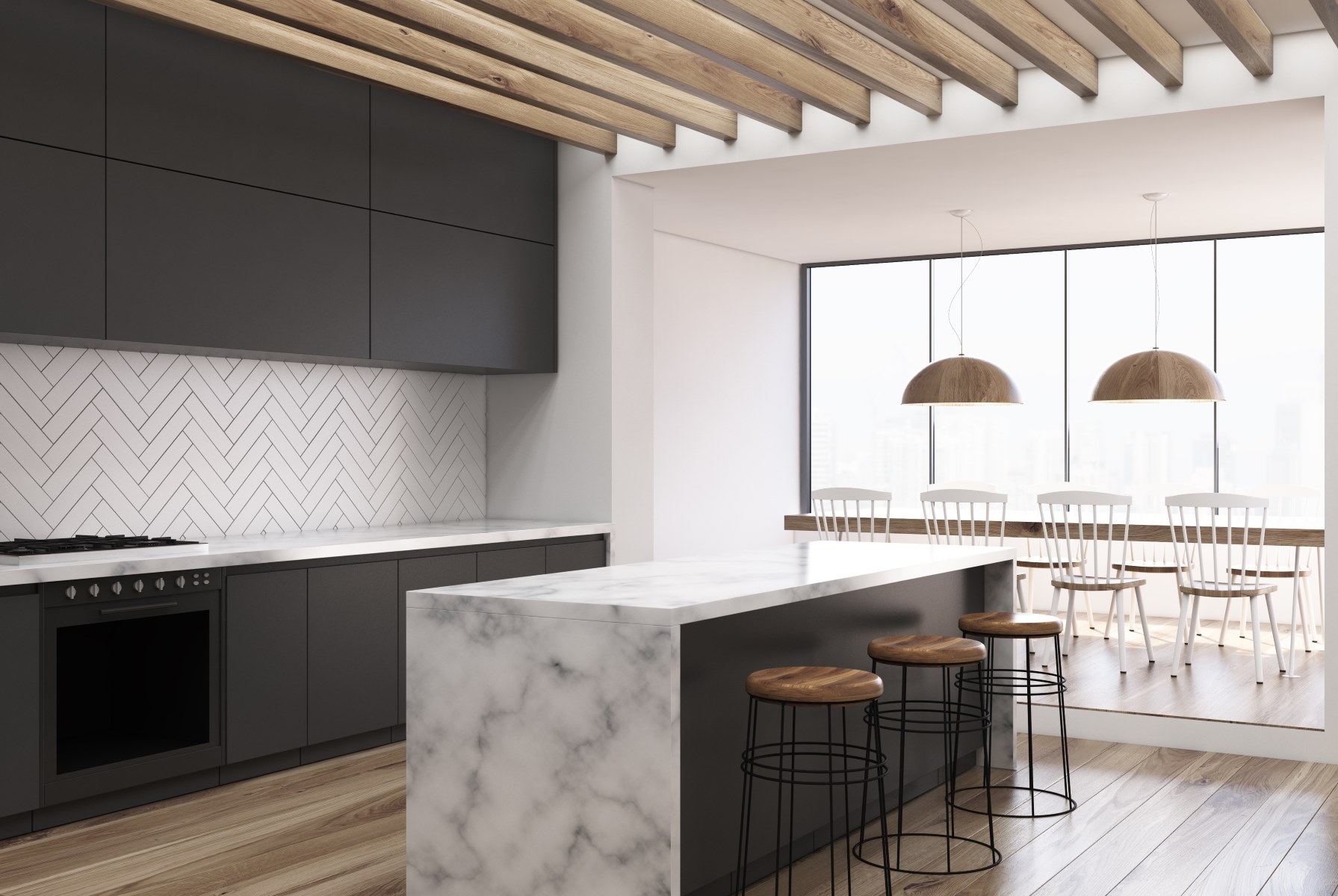

Articles
How To Pick Countertops For Kitchen
Modified: February 23, 2024
Looking for helpful articles on how to pick the perfect countertops for your kitchen? Discover expert tips and advice on choosing the right countertops to enhance your kitchen's functionality and style.
(Many of the links in this article redirect to a specific reviewed product. Your purchase of these products through affiliate links helps to generate commission for Storables.com, at no extra cost. Learn more)
Introduction
When it comes to designing and renovating your kitchen, choosing the right countertops is a crucial decision. Countertops not only serve as functional work surfaces but also play a significant role in enhancing the overall aesthetics and ambiance of your kitchen. With numerous options available in the market, it can be overwhelming to determine which material is the best fit for your needs.
Before diving into the world of countertop materials, it’s important to consider several key factors. Firstly, you need to assess your lifestyle and the level of usage your countertops will endure. Are you an avid home cook who spends hours preparing meals? Or are you looking for a low-maintenance option that requires minimal upkeep? Understanding your needs will help narrow down the choices.
Secondly, consider the style and design of your kitchen. Countertops should complement the existing elements and color scheme of your space. Whether you have a contemporary, rustic, or traditional kitchen, there’s a material out there that will perfectly align with your aesthetic preferences.
Lastly, budget is an important consideration. Countertop materials vary significantly in price, so it’s important to set a budget and explore options that fall within your financial range. Remember to consider the long-term value and durability of the material as well, as investing in a high-quality countertop can save you money in the long run.
Now that we’ve discussed the considerations, let’s explore the different types of countertop materials available in the market and their unique features.
Key Takeaways:
- Choose countertops based on lifestyle, aesthetics, and budget. Consider durability, maintenance, and long-term value. Professional installation ensures a flawless and long-lasting result.
- Granite, quartz, marble, solid surface, and more offer unique benefits. Consider color, pattern, and thickness for a personalized and functional kitchen. Professional installation ensures a seamless and durable result.
Read more: Best Kitchen Runner Picks for Your Home
Considerations Before Choosing
Before making a decision on which countertop material to choose for your kitchen, it’s important to take several factors into consideration. These considerations will help you make an informed choice that aligns with your needs and preferences. Let’s take a look at some key considerations to keep in mind:
- Functionality: Consider how you will be using your countertops. Are you an avid cook who spends a lot of time in the kitchen? If so, you may want to choose a material that is heat-resistant, scratch-resistant, and can withstand heavy use. On the other hand, if you don’t spend much time in the kitchen or prefer minimal maintenance, you may opt for a low-maintenance material.
- Aesthetics: Your countertops should complement the overall style and design of your kitchen. Consider the color scheme, cabinetry, and flooring to ensure that the material you choose enhances the aesthetics of the space. Popular options include natural stone materials like granite and marble, as well as engineered quartz and solid surface materials.
- Budget: Countertop materials vary in cost, so it’s important to set a budget and explore options that fall within your price range. Keep in mind that while some materials may have a higher upfront cost, they may offer long-term durability and value, ultimately saving you money in the long run.
- Durability: Assess the durability of different countertop materials and consider how they will stand up to daily use. Some materials, like granite and quartz, are known for their strength and resistance to stains, scratches, and heat. Others, like laminate and wood, may require more frequent maintenance and can be prone to damage.
- Maintenance: Consider the amount of maintenance and upkeep required for each material. Some materials, like granite and quartz, are relatively low-maintenance and only require regular cleaning. Others, like marble and wood, may require sealing and more frequent care to maintain their appearance.
By considering these factors, you can narrow down your options and select a countertop material that meets your functional, aesthetic, and budgetary requirements.
Types of Countertop Materials
When it comes to choosing the right countertop material for your kitchen, there is a wide range of options available. Each material has its own unique characteristics, benefits, and considerations. Let’s explore some of the most popular countertop materials:
- Granite: Granite countertops are renowned for their beauty and durability. They are made from natural stone, which gives them a timeless and elegant appearance. Granite is heat-resistant, scratch-resistant, and easy to clean. It comes in a variety of colors and patterns, making it a versatile choice for any kitchen design.
- Quartz: Quartz countertops are engineered stone surfaces that are made from a combination of natural quartz and resins. They are highly durable, non-porous, and resistant to stains and scratches. Quartz countertops come in a wide range of colors and patterns, allowing for versatility in design. They require minimal maintenance and are a popular choice for homeowners who want both beauty and functionality.
- Marble: Marble countertops offer a luxurious and sophisticated look. They are known for their unique veining patterns and translucent appearance. While marble is heat-resistant, it is more prone to staining and requires regular sealing to maintain its beauty. Marble countertops are a popular choice for those seeking a classic and timeless aesthetic.
- Solid Surface: Solid surface countertops are man-made surfaces made from acrylic or polyester resins. They offer a seamless and uniform appearance and come in a wide range of colors. Solid surface countertops are non-porous, easy to clean, and resistant to stains. They can be customized to fit any kitchen design and are a popular choice for those seeking a sleek and modern look.
- Concrete: Concrete countertops offer a unique and industrial look. They are highly customizable, as they can be poured on-site and stained or textured to achieve different finishes. Concrete countertops are heat-resistant and very durable. However, they require sealing and regular maintenance to prevent staining and cracking.
- Laminate: Laminate countertops are made from a thin layer of plastic laminated onto particleboard. They are affordable, easy to clean, and come in a wide range of colors and patterns. Laminate countertops are not heat-resistant and can be prone to scratching and damage. They are a popular choice for those on a budget or for rental properties.
- Butcher Block: Butcher block countertops are made from thick strips of wood that are glued together and sealed with an appropriate finish. They offer a warm and natural look to the kitchen. Butcher block countertops require regular maintenance including sealing and oiling to prevent water damage and maintain their appearance.
- Stainless Steel: Stainless steel countertops are known for their sleek and modern look. They are heat-resistant, hygienic, and easy to clean. Stainless steel countertops are often found in professional kitchens and can be a good choice for those who want an industrial aesthetic.
- Porcelain: Porcelain countertops offer the look of natural stone but with enhanced durability and stain resistance. They are non-porous, heat-resistant, and easy to clean. Porcelain countertops come in a variety of colors and patterns, and their durability makes them suitable for both kitchens and bathrooms.
Each of these countertop materials has its own unique features and considerations. Consider your preferences, lifestyle, and budget when selecting the right material for your kitchen.
Granite Countertops
Granite countertops are a popular choice for many homeowners due to their natural beauty, durability, and versatility. These countertops are made from natural stone, formed through intense heat and pressure deep within the Earth’s crust, resulting in a unique and stunning array of colors and patterns.
One of the main advantages of granite countertops is their strength and durability. Granite is a highly resilient material that is resistant to scratches, heat, and impact. This makes it a perfect choice for busy kitchens where cooking and food preparation are frequent activities. Granite countertops can withstand the daily wear and tear without compromising their appearance or functionality.
Another appealing aspect of granite countertops is their aesthetic appeal. Each slab of granite is unique, offering a one-of-a-kind pattern and coloration. From subtle speckles and veins to bold swirls and patterns, granite can enhance the visual aesthetics of any kitchen. Whether you prefer a sleek and modern look or a more traditional and rustic style, you can find a granite countertop that matches your design preferences.
Furthermore, granite countertops are relatively low maintenance. While they are not completely impervious to staining, sealing the surface with a high-quality granite sealer can help prevent absorption of liquids and minimize any potential damage. Routine cleaning with mild soap and water is usually sufficient to keep granite countertops looking their best.
When it comes to cost, granite countertops can be a bit more expensive compared to other materials. However, it is important to consider the long-term value and durability of granite. Investing in high-quality granite countertops can increase the resale value of your home and provide you with years of enjoyment and functionality.
It’s worth noting that the installation of granite countertops should be done by professionals due to the weight and delicate nature of the material. Hiring an experienced installer ensures proper handling, fabrication, and installation, resulting in a flawless and long-lasting countertop.
In summary, granite countertops offer a stunning combination of natural beauty, durability, and functionality. With their wide range of colors and patterns, they can elevate the visual appeal of any kitchen. While they require proper maintenance and a higher upfront investment, the long-term benefits and value they provide make them a worthwhile investment for homeowners.
Quartz Countertops
Quartz countertops have become increasingly popular in contemporary kitchens due to their beauty, durability, and low maintenance requirements. Unlike natural stone countertops, quartz countertops are engineered using a blend of natural quartz crystals and resins, resulting in a surface that is both stunning and resilient.
One of the key advantages of quartz countertops is their exceptional durability. They are highly resistant to scratches, stains, and heat, making them an ideal choice for busy kitchens. Quartz countertops are engineered to be non-porous, which means they do not require sealing like natural stone countertops. This makes them highly resistant to bacteria, mold, and mildew, contributing to a hygienic and easy-to-clean kitchen environment.
The versatility of quartz countertops is another appealing characteristic. With a wide range of colors, patterns, and finishes to choose from, you can easily find a quartz countertop that matches your desired aesthetic. Whether you prefer a classic white, a bold black, or a surface that mimics the look of natural stone, there are endless design possibilities with quartz countertops. Additionally, since they are engineered, quartz countertops have a consistent appearance throughout, ensuring a cohesive and seamless look in your kitchen.
Another advantage of quartz countertops is their low maintenance requirements. Unlike natural stone countertops that may require periodic sealing, quartz countertops can be easily cleaned with mild soap and water. They are resistant to staining and do not require extensive maintenance or upkeep, making them an attractive choice for homeowners seeking a hassle-free countertop option.
While quartz countertops offer many benefits, it’s important to note that they are generally more expensive than some other materials. However, the investment is often justified by the long-lasting durability and timeless beauty that quartz countertops provide. It is also worth mentioning that the cost of quartz countertops can vary depending on factors such as color, pattern, and thickness.
When it comes to installation, quartz countertops should be installed by professionals to ensure a precise fit and proper handling of the material. Professional installation ensures that the countertop is level, seamless, and securely attached, resulting in a flawless finished product.
In summary, quartz countertops offer a winning combination of beauty, durability, and low maintenance. Their non-porous surface, wide range of design options, and resistance to stains and heat make them an excellent choice for any kitchen. While they may come at a higher price point, the long-term value and ease of maintenance make quartz countertops a worthwhile investment for homeowners.
Marble Countertops
Marble countertops exude timeless elegance and sophistication, making them a popular choice for homeowners who desire a luxurious and classic look in their kitchens. As a natural stone, marble is formed over millions of years from limestone, resulting in unique patterns, colors, and textures that can create a stunning visual impact in any space.
One of the major attractions of marble countertops is their unparalleled beauty. The distinct veining and intricate patterns found in marble slabs give each countertop a unique and artistic appearance. From the classic white Carrara marble to the dramatic Calacatta marble, there are countless options to suit various design aesthetics.
Marble countertops not only offer visual appeal but also durability. While marble is not as hard or scratch-resistant as granite or quartz, it still holds up well to everyday use when properly cared for. However, it is important to note that marble is a softer stone, and it is more prone to scratching, staining, and etching from acidic substances such as lemon juice or vinegar. Regular sealing and proper maintenance are essential to protect the surface and maintain its beauty.
One of the advantages of marble countertops is their ability to stay cool, making them ideal for baking and working with dough. The natural heat resistance of marble helps to keep the surface temperature lower than other countertop materials, providing a cool workspace.
It’s important to consider that marble countertops require a bit more care and maintenance compared to other materials. Regular sealing is necessary to prevent staining and etching. Additionally, it is recommended to use cutting boards and avoid placing hot items directly on the surface to prevent damage.
When it comes to cost, marble countertops can be more expensive than other options, especially high-end variations. The price of marble can vary widely depending on the quality, rarity, and location of the stone. It is essential to factor in the long-term investment and the aesthetic value that marble countertops bring to your kitchen.
During installation, it is recommended to hire a professional to ensure a proper and accurate fit. Marble slabs may also require additional reinforcement due to their weight and fragility.
In summary, marble countertops offer a timeless and luxurious appeal that can elevate the aesthetics of any kitchen. While they require extra care and maintenance, the unique beauty and aesthetic value of marble make it a highly sought-after choice for homeowners who appreciate its elegance and charm.
Solid Surface Countertops
Solid surface countertops are a popular choice for homeowners looking for a sleek, seamless, and versatile option for their kitchen countertops. Made of synthetic materials, typically acrylic or polyester resins, solid surface countertops offer a wide array of design possibilities and practical benefits.
One of the key advantages of solid surface countertops is their ability to create a seamless and uniform appearance. Unlike natural stone countertops that may have visible seams, solid surface countertops can be seamlessly joined together, creating a continuous surface without noticeable lines. This allows for a clean and sophisticated look that suits various kitchen styles and designs.
Another benefit of solid surface countertops is their impressive range of colors and patterns. They are available in a wide variety of hues, including vibrant colors, neutral shades, and even patterns that mimic the look of natural stone. This versatility allows homeowners to select a solid surface countertop that perfectly complements their desired kitchen aesthetic.
Additionally, solid surface countertops are non-porous, making them resistant to stains, bacteria, and mildew growth. The non-porous nature of the material also makes solid surface countertops easy to clean and maintain. Regular cleaning with soap and water is typically sufficient to keep them looking their best. However, it’s important to avoid using abrasive cleaners or materials that could scratch the surface.
One of the appealing aspects of solid surface countertops is their ability to be repaired. If the surface becomes scratched or damaged, it can be sanded and refinished to restore its original appearance. This makes solid surface countertops a practical choice for homeowners who value longevity and want a countertop that can stand up to everyday wear and tear.
In terms of cost, solid surface countertops typically fall somewhere between natural stone and laminate countertops. The price largely depends on the quality, brand, color, and thickness of the material. While solid surface countertops may have a higher upfront cost compared to laminate, their durability and repairability make them a cost-effective option in the long run.
During installation, it is recommended to hire a professional to ensure precise measurements, proper fitting, and seamless joining of the solid surface countertop pieces. Professional installation can ensure a flawless finished product that meets your design and functional requirements.
In summary, solid surface countertops offer a perfect blend of style, versatility, and practicality. With their seamless appearance, wide range of colors and patterns, and low maintenance requirements, solid surface countertops are a popular choice for homeowners seeking a modern and functional countertop option.
Concrete Countertops
Concrete countertops have gained popularity in recent years for their unique and industrial aesthetic, making them a popular choice for homeowners seeking a modern and customizable look for their kitchen surfaces. Concrete countertops are durable, versatile, and offer a range of design possibilities that can truly make a statement in any kitchen.
One of the key advantages of concrete countertops is their versatility in terms of design and customization. Concrete can be poured and molded into any shape and size to fit the specific dimensions of your kitchen. It can also be stained or textured to achieve different finishes, allowing for endless design possibilities. Whether you prefer a smooth and polished appearance or a more textured and rugged look, concrete countertops can be tailored to match your desired aesthetic.
Concrete countertops are also known for their exceptional durability and resistance to heat, scratches, and stains. When properly sealed, they can withstand the daily wear and tear of a busy kitchen. It’s worth noting that, over time, concrete countertops may develop hairline cracks due to the natural settling and movement of the material. However, these cracks are typically superficial and add to the unique character and charm of the countertop.
Maintenance is an important consideration when it comes to concrete countertops. While they are generally low maintenance, regular sealing is necessary to protect the surface from stains and maintain its appearance. Sealing also helps to enhance the color and finish of the concrete. It’s important to follow the manufacturer’s recommendations for sealing and cleaning to ensure the longevity and performance of the countertop.
When it comes to cost, concrete countertops can vary in price depending on factors such as complexity of design, size, thickness, and customization. While they can be more expensive than traditional countertop materials like laminate or solid surface, concrete countertops offer a unique and custom look that is hard to replicate with other materials.
Concrete countertop installation requires specialized skills and expertise. It is recommended to hire a professional who has experience working with concrete to ensure accurate measurements, proper reinforcement, and a smooth installation process. Professional installation will ensure that the countertop is level, seamless, and properly sealed.
In summary, concrete countertops offer a modern and customizable option for homeowners who desire a unique and industrial look in their kitchen. With their versatility in design, durability, and resistance to heat and stains, concrete countertops can be a striking focal point that adds character and personality to any kitchen space.
Laminate Countertops
Laminate countertops have long been a popular choice for homeowners due to their affordability, wide range of colors and patterns, and low maintenance requirements. Made by fusing layers of paper or fabric with resins and bonded onto a particleboard core, laminate countertops provide a budget-friendly option for those looking to upgrade their kitchen surfaces.
One of the main advantages of laminate countertops is their affordability. Laminate is a cost-effective alternative to natural stone or solid surface materials, making it a popular choice for homeowners on a budget. Despite its affordable price tag, laminate countertops offer a wide array of design options. They come in various colors, patterns, and finishes, allowing homeowners to achieve the look they desire without breaking the bank.
In addition to affordability, laminate countertops are known for their durability and low maintenance. The surface is resistant to scratches, stains, and heat to a certain extent. However, it is worth noting that hot pans or objects may cause damage to laminate surfaces, so it’s advisable to use trivets or cutting boards. Regular cleaning with mild soap and water is usually all that is required to keep laminate countertops looking their best.
Laminate countertops are also easy to install, making them a popular choice for DIY enthusiasts. The material is relatively lightweight, making it easier to handle and install than some other countertop options. Laminate countertops usually come with preformed edges, simplifying the installation process even further.
However, it’s important to note that while laminate countertops offer affordability and ease of installation, they may not have the same level of durability and longevity as higher-end materials. Over time, laminate countertops can show signs of wear and may be more susceptible to chipping or scratching compared to materials like granite or quartz. However, with proper care and maintenance, laminate countertops can last for many years.
In summary, laminate countertops offer an affordable and versatile option for homeowners looking to update their kitchen surfaces. With a wide range of colors, patterns, and finishes available, laminate countertops can provide a fresh and stylish look to any kitchen. While they may not offer the same level of durability or value as some other materials, laminate countertops are a practical choice for those on a budget or for rental properties.
When picking countertops for your kitchen, consider factors such as durability, maintenance, and style. Materials like granite and quartz are popular choices for their durability and low maintenance. Be sure to also consider the overall aesthetic of your kitchen when making your selection.
Butcher Block Countertops
Butcher block countertops are a popular choice for homeowners seeking a warm and natural look in their kitchen. Made from thick strips of wood, typically maple, cherry, or oak, butcher block countertops offer a unique combination of beauty, durability, and functionality.
One of the key advantages of butcher block countertops is their natural warmth and aesthetic appeal. The distinct patterns and grains of the wood create a cozy and inviting atmosphere in the kitchen. Butcher block countertops can also be a versatile addition to any kitchen design, perfectly complementing both traditional and modern styles.
In addition to their visual appeal, butcher block countertops are also highly functional. The surface is suitable for cutting and chopping, making it convenient for meal preparation. The inherent durability of wood ensures that the surface can withstand daily use and maintain its integrity over time.
Butcher block countertops are relatively easy to maintain. Regular cleaning with mild soap and water is usually sufficient to remove any food particles or spills. It’s important to note that wood is a porous material, so it’s essential to promptly wipe up any liquids to prevent staining or water damage. Proper oiling and sealing are also necessary to maintain the natural beauty of the wood and enhance its durability.
Over time, butcher block countertops may develop scratches or dents, adding character and uniqueness to the surface. These imperfections can be sanded down and refinished, allowing the countertop to regain its original appearance. Regular maintenance and refinishing can help prolong the lifespan of butcher block countertops.
When it comes to cost, butcher block countertops can vary in price depending on the type of wood, thickness, and size. While they can be more expensive than laminate countertops, they are generally less expensive than natural stone or solid surface materials.
Butcher block countertop installation requires precision and expertise. It is recommended to hire a professional installer to ensure proper measurements, precise fitting, and appropriate sealing of the countertop. Professional installation ensures a durable and long-lasting countertop.
In summary, butcher block countertops offer a warm and welcoming touch to any kitchen. With their unique beauty, functionality, and relatively easy maintenance, they are a popular choice for homeowners seeking a natural and rustic look for their kitchen surfaces.
Stainless Steel Countertops
Stainless steel countertops have gained popularity in recent years due to their sleek and modern appearance, durability, and practicality. Made from a combination of steel and chromium, stainless steel countertops offer a clean and contemporary look that complements a variety of kitchen designs.
One of the key advantages of stainless steel countertops is their exceptional durability. Stainless steel is highly resistant to heat, stains, and bacteria, making it a hygienic choice for kitchens. It is also impervious to rust and corrosion, ensuring that the countertop will maintain its appearance for years to come. Stainless steel countertops can withstand heavy use and are resistant to scratches and dents.
In addition to durability, stainless steel countertops are known for their ease of maintenance. They are non-porous and can be easily cleaned with mild soap and water. Stainless steel is resistant to stains and does not harbor bacteria, making it a practical choice for food preparation areas. Fingerprints and smudges may appear on the surface, but they can be easily wiped away with a stainless steel cleaner.
Another advantage of stainless steel countertops is their versatility. With their clean and minimalist look, they can complement a variety of kitchen styles, from modern and industrial to sleek and contemporary. Stainless steel countertops also work well in commercial kitchens, as they are extremely resistant to heat and have a professional appearance.
It’s worth noting that stainless steel countertops can develop scratches over time, especially with heavy use. However, some homeowners appreciate the patina and character that these scratches can bring to the surface. If desired, scratches can be buffed out or left as intentional design elements.
When it comes to cost, stainless steel countertops can be more expensive compared to other materials. The price varies depending on factors such as the grade and thickness of the steel, the size of the countertop, and any additional features or customizations. However, the durability and longevity of stainless steel make it a worthwhile investment for many homeowners.
During installation, it is recommended to hire a professional to ensure precise measurements, proper fitting, and installation of the stainless steel countertop. Professional installation ensures a seamless and professionally finished result.
In summary, stainless steel countertops offer a sleek, modern, and hygienic option for kitchens. With their durability, ease of maintenance, and versatile design, they are a popular choice for homeowners seeking a clean and contemporary look for their kitchen surfaces.
Porcelain Countertops
Porcelain countertops have gained popularity in recent years as a durable and versatile option for kitchen surfaces. Made from a combination of clay, minerals, and other natural materials, porcelain countertops offer a unique blend of beauty, durability, and practicality.
One of the key advantages of porcelain countertops is their exceptional durability. Porcelain is extremely hard, making it resistant to scratches, stains, heat, and impact. It is a non-porous material, which means it does not absorb liquids or harbor bacteria, making it hygienic and easy to clean. Porcelain countertops are also resistant to UV light, ensuring that they will maintain their color and appearance over time.
In addition to their durability, porcelain countertops offer a wide range of design possibilities. They are available in an extensive selection of colors, patterns, and finishes, including options that mimic the appearance of natural stone. Whether you prefer a sleek and minimalist look or a bold and textured design, porcelain countertops can be customized to suit your style and aesthetic preferences.
Another advantage of porcelain countertops is their resistance to heat and staining. Porcelain can withstand high temperatures without being damaged or discolored, making it a practical choice for kitchens. It is also highly resistant to staining from common household substances such as coffee, wine, and oils, providing peace of mind for homeowners.
Maintenance of porcelain countertops is relatively easy. Regular cleaning with mild soap and water is usually sufficient to keep the surface clean and free from debris. Porcelain countertops do not require sealing, unlike some natural stone options, which reduces the need for ongoing maintenance.
When it comes to cost, porcelain countertops generally fall on the higher end of the price spectrum. The exact cost will depend on factors such as the brand, quality, and size of the porcelain slabs. While the upfront cost may be higher, the long-term value and durability of porcelain make it a worthwhile investment for many homeowners.
During installation, it is recommended to hire a professional to ensure precise measurements, accurate fitting, and proper installation of the porcelain countertops. Professional installation ensures a seamless and secure result that will withstand daily use.
In summary, porcelain countertops offer a combination of beauty, durability, and practicality that makes them a popular choice for kitchen surfaces. With their wide range of design options, resistance to scratches and stains, and low maintenance requirements, porcelain countertops are a reliable and stylish choice for homeowners.
Choosing the Right Color and Pattern
Choosing the color and pattern of your countertops is an important step in creating the overall look and feel of your kitchen. The right color and pattern can enhance the aesthetics of the space, complement the existing decor, and create a cohesive design. Here are some tips to help you select the perfect color and pattern for your countertops:
- Consider your overall kitchen design: Take into account the style and color scheme of your kitchen. Are you going for a modern and minimalist look or a more traditional and rustic feel? The color and pattern of your countertops should harmonize with the overall design of the space.
- Match or contrast with the cabinetry: Consider the color of your kitchen cabinetry and determine if you want your countertops to match or contrast with it. Matching countertops can create a cohesive and unified look, while contrasting countertops can add visual interest and dimension to the space.
- Think about long-term trends: While it’s important to choose a color and pattern that you love, it’s also worth considering long-term trends. Certain colors and patterns may go in and out of style, so think about whether you want a timeless look or if you are open to changing your countertops in the future.
- Consider the size of your kitchen: The size of your kitchen can also influence the color and pattern of your countertops. Lighter colors and subtle patterns can make a small kitchen appear more spacious, while darker colors and bolder patterns can add depth and visual interest to a larger kitchen.
- Test samples in your space: Before making a final decision, it’s a good idea to obtain samples of the countertop material and bring them into your kitchen. This will allow you to see how the color and pattern will look under your kitchen lighting and alongside your existing decor.
- Consider your lifestyle: Take into account your lifestyle and how you use your kitchen. If you have young children or frequently cook with ingredients that can stain or scratch countertops, you may want to opt for a color and pattern that is forgiving and can easily hide wear and tear.
Ultimately, choosing the right color and pattern for your countertops is a personal decision. It’s important to take your time, consider your preferences, and envision how the countertops will fit into the overall aesthetics of your kitchen. With the wide range of colors and patterns available, you’re sure to find the perfect option that suits your style and enhances your kitchen space.
Determining the Right Thickness
When it comes to choosing countertops for your kitchen, determining the right thickness is an important consideration. The thickness of the countertops can affect not only the aesthetics but also the durability and functionality of the surfaces. Here are some factors to consider when determining the right thickness for your countertops:
- Material: Different countertop materials have different recommended thicknesses. For example, natural stone like granite or quartz is often available in thicknesses ranging from 1.25 inches to 2 inches or more. Solid surface materials, on the other hand, are typically available in thinner options, around 0.5 to 0.75 inches. Consider the specific requirements and recommendations for the material you choose.
- Aesthetic preference: The thickness of the countertops can significantly impact the overall look of your kitchen. Thicker countertops can convey a substantial and luxurious feel, while thinner countertops can create a sleek and minimalist look. Consider the style and aesthetic you want to achieve in your kitchen and choose the thickness accordingly.
- Support and stability: Thicker countertops tend to offer better support and stability, especially for overhangs where additional reinforcement may be required. If you plan to have significant overhangs for seating or other purposes, a thicker countertop may be necessary to ensure stability and prevent sagging or cracking.
- Edge profile: The thickness of the countertops can impact the available options for edge profiles. Thicker countertops allow for more elaborate and decorative edge profiles, which can enhance the overall appearance of the surfaces. Thinner countertops may have more limited edge profile options.
- Budget: Thicker countertops can be more expensive due to the additional material required. Consider your budget and weigh it against the desired thickness. It’s important to find a balance between your budget and the functionality and aesthetic appeal of the countertops.
- Installation considerations: Thicker countertops are generally heavier and may require additional support during installation. Ensure that your cabinetry and structural elements can accommodate the weight of the chosen thickness. Professional installation is typically recommended for thicker countertops to ensure proper support and installation procedures.
Ultimately, the right thickness for your countertops will depend on a combination of factors including material, style preference, functionality, and budget. It’s important to research the specific requirements and recommendations for the chosen material and consult with a professional to ensure that the chosen thickness meets both your aesthetic and functional needs.
Assessing Durability and Maintenance Requirements
When selecting countertops for your kitchen, it’s crucial to assess the durability and maintenance requirements of different materials. Understanding these factors will help you choose countertops that can withstand the demands of your lifestyle and provide long-lasting performance. Here are some considerations to keep in mind:
- Durability: The durability of countertops is determined by their resistance to scratches, stains, heat, and impact. Natural stone materials like granite and quartz are known for their exceptional durability and ability to withstand daily wear and tear. Solid surface and laminate countertops are also durable, but they may be more prone to scratches and heat damage. Consider your lifestyle and the level of usage in your kitchen to determine the level of durability required.
- Stain Resistance: Countertops that are highly resistant to stains are easier to maintain and keep clean. Natural stone materials like granite and quartz are typically non-porous, making them more resistant to stains and spills. Solid surface and laminate countertops may require more frequent cleaning and maintenance to prevent staining. Consider the potential for stains in your kitchen and choose a material with appropriate resistance.
- Heat Resistance: If you frequently place hot pots and pans directly on the countertop, heat resistance is an essential consideration. Granite and quartz countertops are known for their ability to handle high temperatures without being damaged. Solid surface countertops and laminate countertops may not be as heat-resistant and can be prone to burns or discoloration. Always use trivets or heat-resistant pads for hot items on less heat-resistant countertops.
- Scratch Resistance: If you often use sharp knives or heavy kitchen utensils, scratch resistance becomes important. Natural stone countertops like granite and quartz are generally scratch-resistant and can withstand the pressure from cutting and chopping. Solid surface and laminate countertops may be more susceptible to scratches and may require more care to prevent damage.
- Maintenance: Consider the level of maintenance required to keep your countertops in optimal condition. Some materials, like granite and quartz, are relatively low maintenance and only require regular cleaning with mild soap and water. Others, like marble and wood, may require periodic sealing and specific cleaning products to maintain their appearance. Laminate and solid surface countertops are generally easy to maintain but may require more frequent cleaning and care to prevent scratches and stains.
It’s important to strike a balance between the desired durability and maintenance requirements. A high-maintenance countertop may not be suitable for a busy household, while a low-maintenance option may not provide the desired level of durability. Consider your lifestyle, cooking habits, and willingness to perform regular maintenance tasks when making the final decision. Additionally, always follow manufacturer recommendations and guidelines for cleaning and maintenance to ensure the longevity and performance of your countertops.
Budgeting for Countertop Installation
When it comes to installing new countertops in your kitchen, budgeting is an important step to ensure that you can afford the materials, installation, and any additional expenses that may arise during the process. Here are some key factors to consider when budgeting for countertop installation:
- Countertop Material Costs: The cost of the countertop material itself will vary depending on the type and quality you choose. Natural stone materials such as granite and quartz tend to be more expensive, while laminate and solid surface options are more budget-friendly. Research the costs of different materials and consider which one aligns with your budget and preferences.
- Countertop Size and Square Footage: The size of your kitchen and the square footage of the countertops will impact the overall cost. Larger kitchens and more extensive countertop areas will require more material, resulting in higher costs. Take accurate measurements of your countertop area to get an estimate of the square footage and consult with countertop suppliers or contractors for pricing information.
- Countertop Edge Profiles: The type of edge profile you choose for your countertops can also impact the cost. More intricate and decorative edge profiles can add to the overall expense of the installation. Consider the style and look you want to achieve and research the cost differences between various edge profiles.
- Additional Expenses: In addition to the cost of the countertops, there may be additional expenses to consider. These can include removal and disposal of existing countertops, plumbing adjustments, sink and faucet installation, backsplash installation, and sealing or finishing of the countertops. Be sure to factor in these additional costs when creating your budget.
- Installation Labor Costs: Unless you plan to install the countertops yourself, you will need to budget for professional installation. The labor costs for installation can vary depending on the complexity of the project, the size of the countertop area, and the specific requirements of the material chosen. Obtain multiple quotes from reputable contractors to get an accurate estimate of the labor costs.
- Long-Term Value: While it may be tempting to opt for the least expensive option, it’s important to consider the long-term value and durability of the countertops. Investing in higher-quality materials that offer superior durability and longevity can save you money in the long run by reducing the need for frequent repairs or replacement.
It’s important to allocate a realistic budget for your countertop installation project and consider the various factors that can impact the cost. Research different materials, compare prices, and obtain multiple quotes from contractors. Remember to also set aside some extra funds for unexpected expenses that may arise during the installation process. By carefully budgeting for your countertop installation, you can create a beautiful and functional kitchen within your financial means.
Hiring a Professional or DIY Installation
When it comes to installing countertops in your kitchen, you have two options: hiring a professional or taking the DIY route. Each approach has its own advantages and considerations. Here are some points to help you decide whether to hire a professional or go for a DIY installation:
- Level of Skill and Experience: Installing countertops requires a certain level of skill and experience. If you have little to no experience with home improvement projects or working with countertop materials, it may be wise to hire a professional. Professionals have the necessary expertise and tools to ensure a precise and seamless installation.
- Complexity of the Project: Consider the complexity of the countertop installation project. If there are intricate cuts, special edge profiles, or other challenging aspects involved, it may be best to leave it to the professionals. They have the knowledge and experience to handle these complexities efficiently and ensure a high-quality result.
- Time and Commitment: DIY countertop installation can be time-consuming and labor-intensive. It requires careful planning, preparation, and precise execution. Ask yourself if you have the time, patience, and dedication to complete the project to your satisfaction. Hiring a professional allows you to focus on other tasks and ensures timely completion of the installation.
- Tools and Equipment: Installing countertops requires specific tools and equipment. Consider the cost and availability of these tools. If you don’t already own them or don’t plan to use them frequently, it may be more cost-effective to hire a professional who has access to the necessary tools and equipment.
- Warranty and Insurance: Professional installers often provide warranties on their workmanship. This can give you peace of mind knowing that any potential issues or repairs will be covered. Additionally, professionals carry liability insurance, protecting you from any liability in case of accidents or damages during the installation process.
- Quality and Longevity: A professional installation is more likely to result in a high-quality, durable countertop. They have the expertise to ensure proper support, leveling, and sealing, which can contribute to the longevity and performance of the countertops. If you want the best possible result and value for your investment, hiring a professional is recommended.
Ultimately, the decision to hire a professional or opt for a DIY installation depends on your skill level, experience, available time, and budget. If you have the necessary skillset and feel confident in your ability to carry out the installation, a DIY approach may be feasible. However, if you lack experience or want to ensure a flawless and professional result, hiring a reputable and experienced professional is the way to go.
Take the time to research and compare professional installers, obtain multiple quotes, and evaluate their portfolio and customer reviews. This will help you find a reliable and skilled professional who can efficiently complete the installation and provide you with beautiful and functional countertops for years to come.
Conclusion
Choosing the right countertops for your kitchen is a significant decision that can greatly impact the overall look, functionality, and value of your space. By considering key factors such as material durability, maintenance requirements, budget, and personal preferences, you can make an informed choice that suits your needs and style.
There is a wide range of countertop materials to choose from, each with its own unique features and considerations. Granite offers timeless beauty and durability, while quartz provides a combination of strength and low maintenance. Marble exudes timeless elegance, and solid surface countertops offer a seamless and customizable option. Concrete offers a modern and industrial appeal, and laminate is a budget-friendly choice. Butcher block countertops provide warmth and versatility, while stainless steel offers a sleek and hygienic option. Porcelain countertops provide durability and resistance to stains, and each material has its own unique benefits.
When selecting countertops, it’s important to assess your lifestyle, aesthetic preferences, and budget. Consider factors such as functionality, maintenance requirements, and long-term value. The right color and pattern can enhance the overall look of your kitchen, while the appropriate thickness ensures durability and stability.
During the budgeting process, it’s important to consider the cost of the materials, additional expenses such as installation, and the long-term value of your investment. Whether you choose to hire a professional or opt for a DIY installation, consider your skill level, time commitment, and available tools.
In conclusion, selecting the right countertops for your kitchen requires careful consideration and research. By understanding the characteristics and benefits of different materials, assessing your specific needs and preferences, setting a budget, and weighing the options for professional installation or DIY, you can make a well-informed decision that brings beauty, functionality, and long-lasting value to your kitchen.
Frequently Asked Questions about How To Pick Countertops For Kitchen
Was this page helpful?
At Storables.com, we guarantee accurate and reliable information. Our content, validated by Expert Board Contributors, is crafted following stringent Editorial Policies. We're committed to providing you with well-researched, expert-backed insights for all your informational needs.
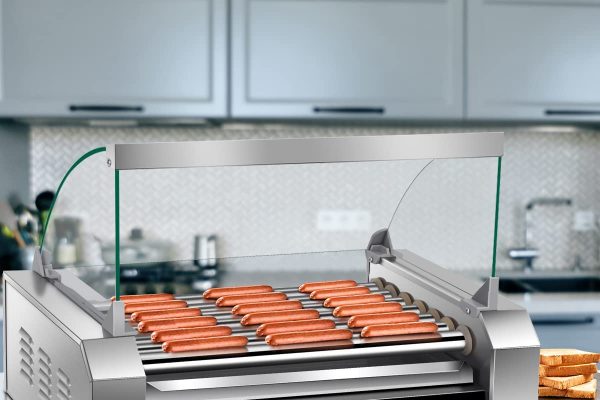
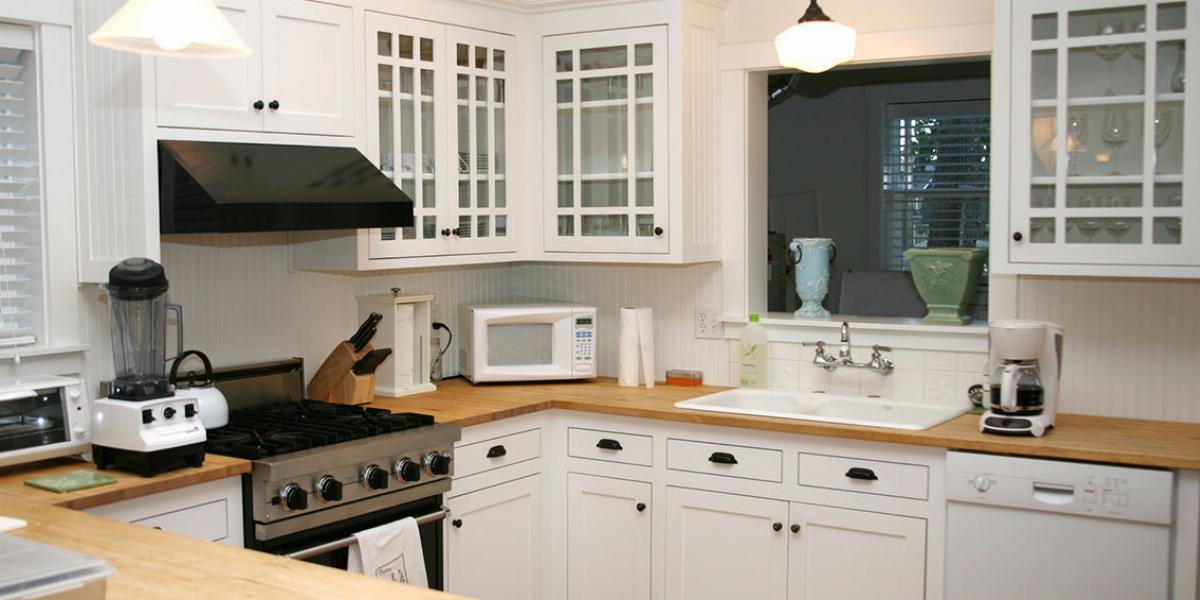
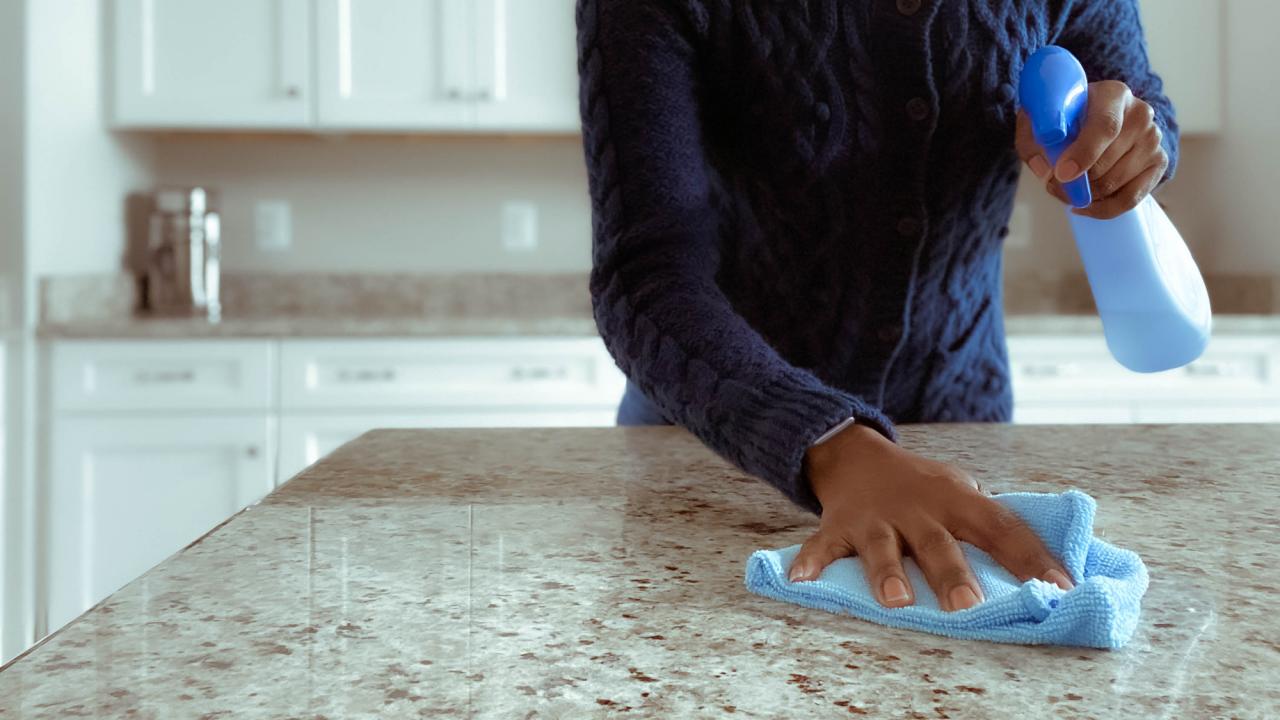
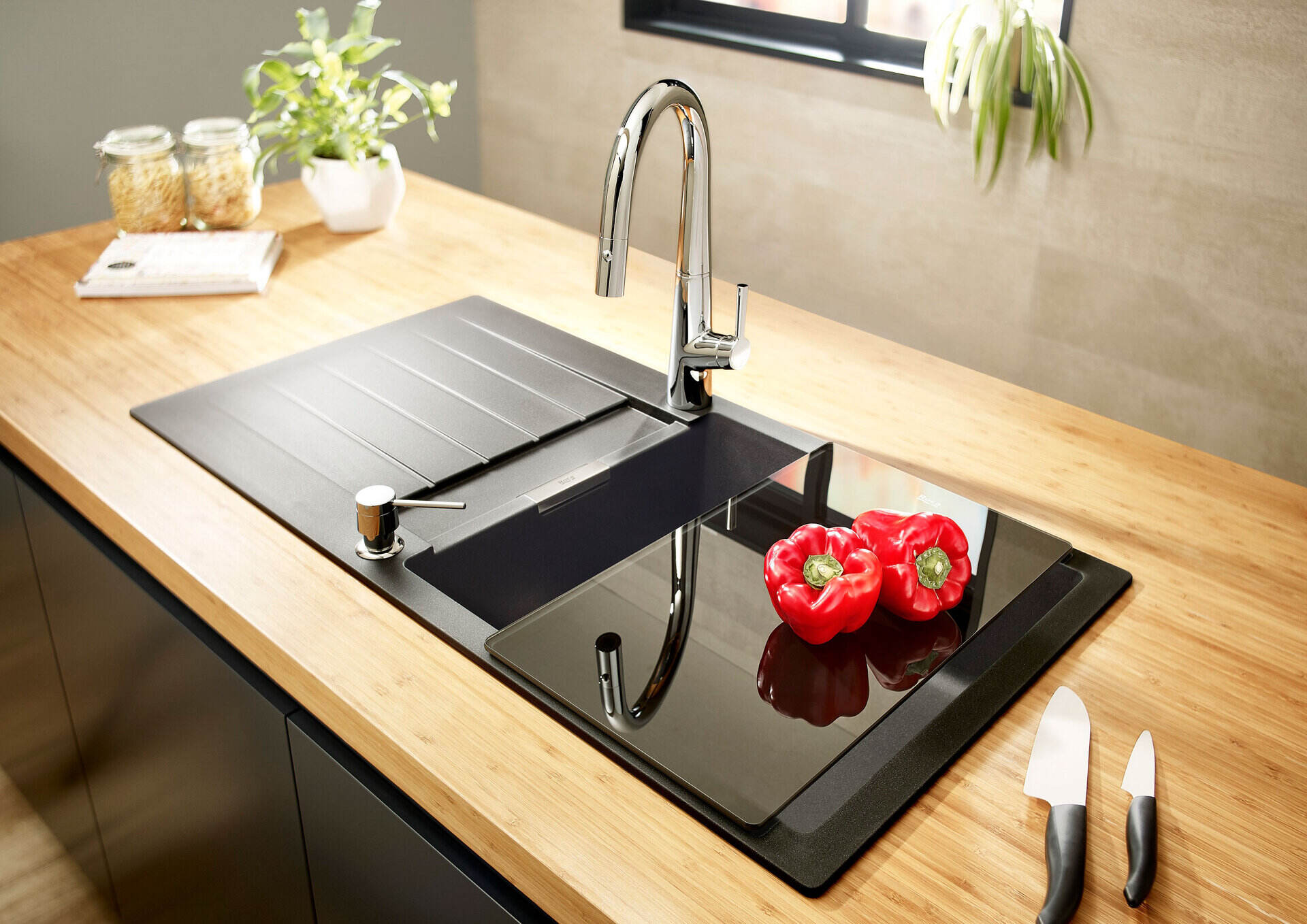
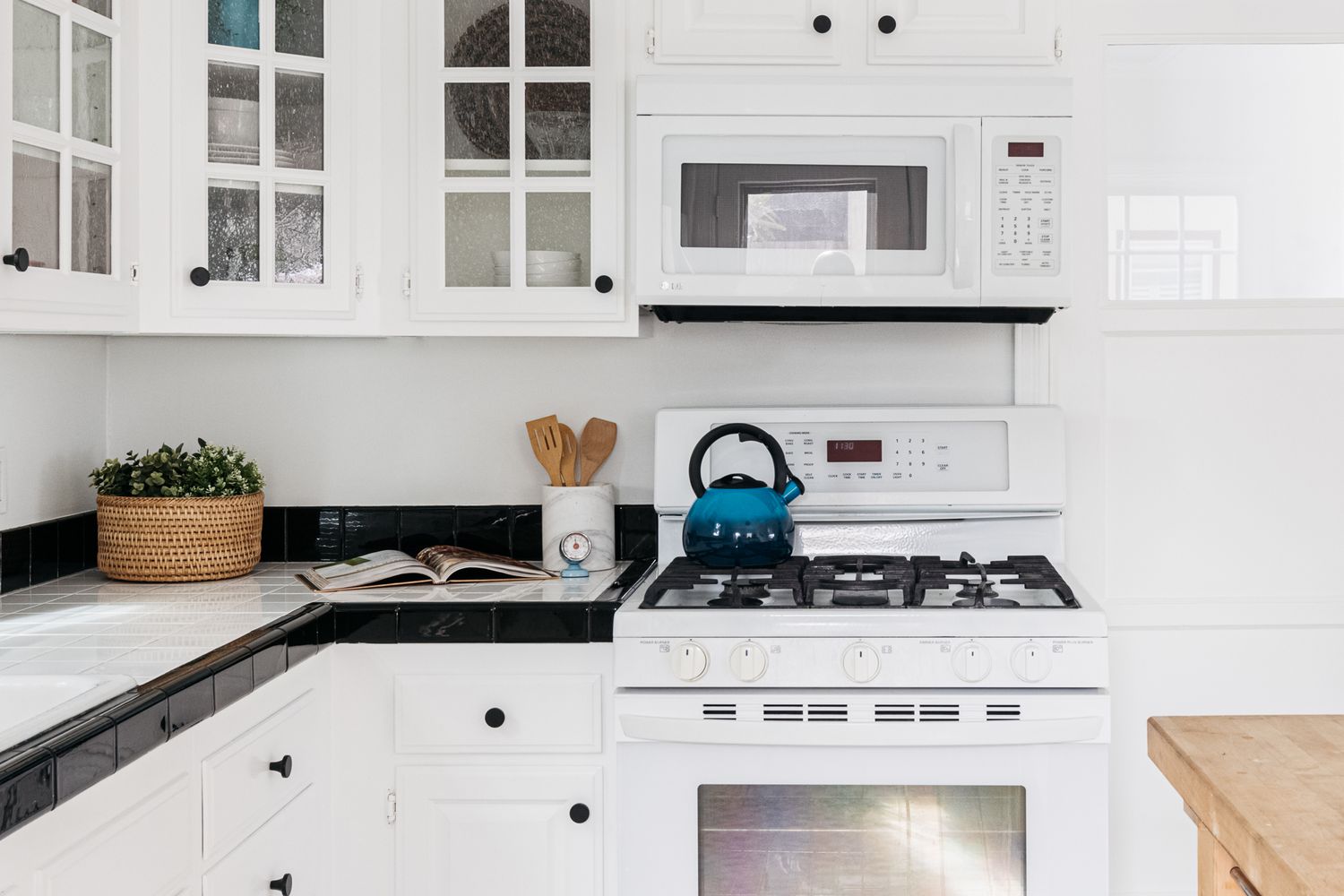
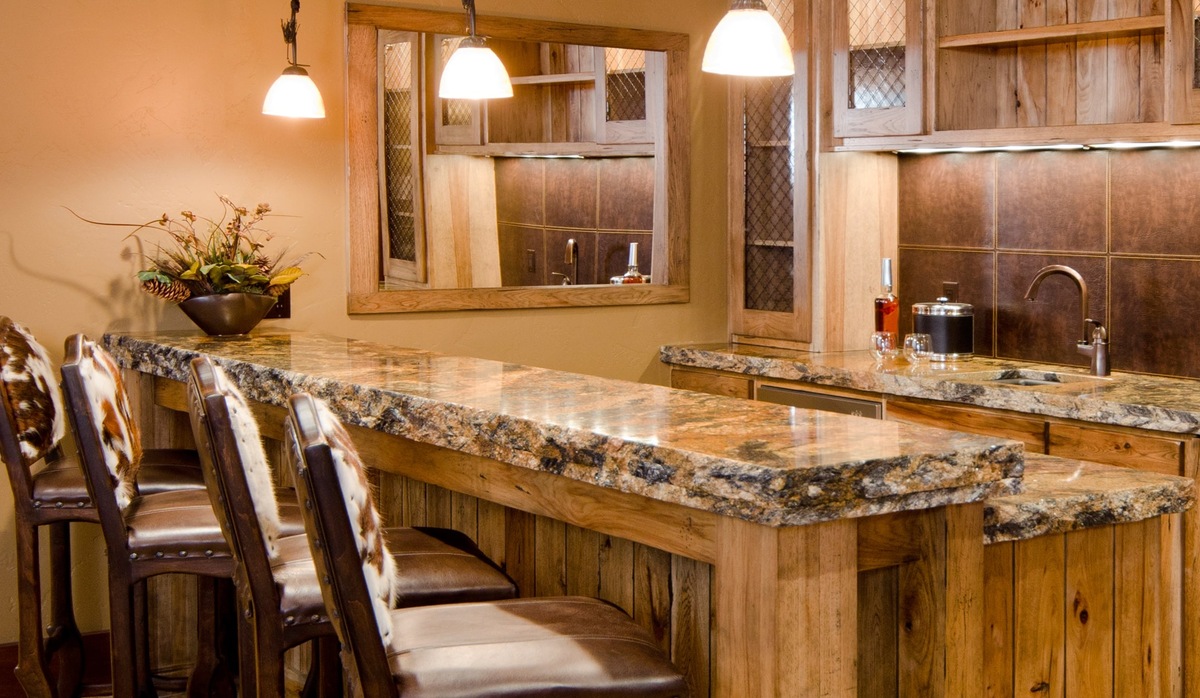
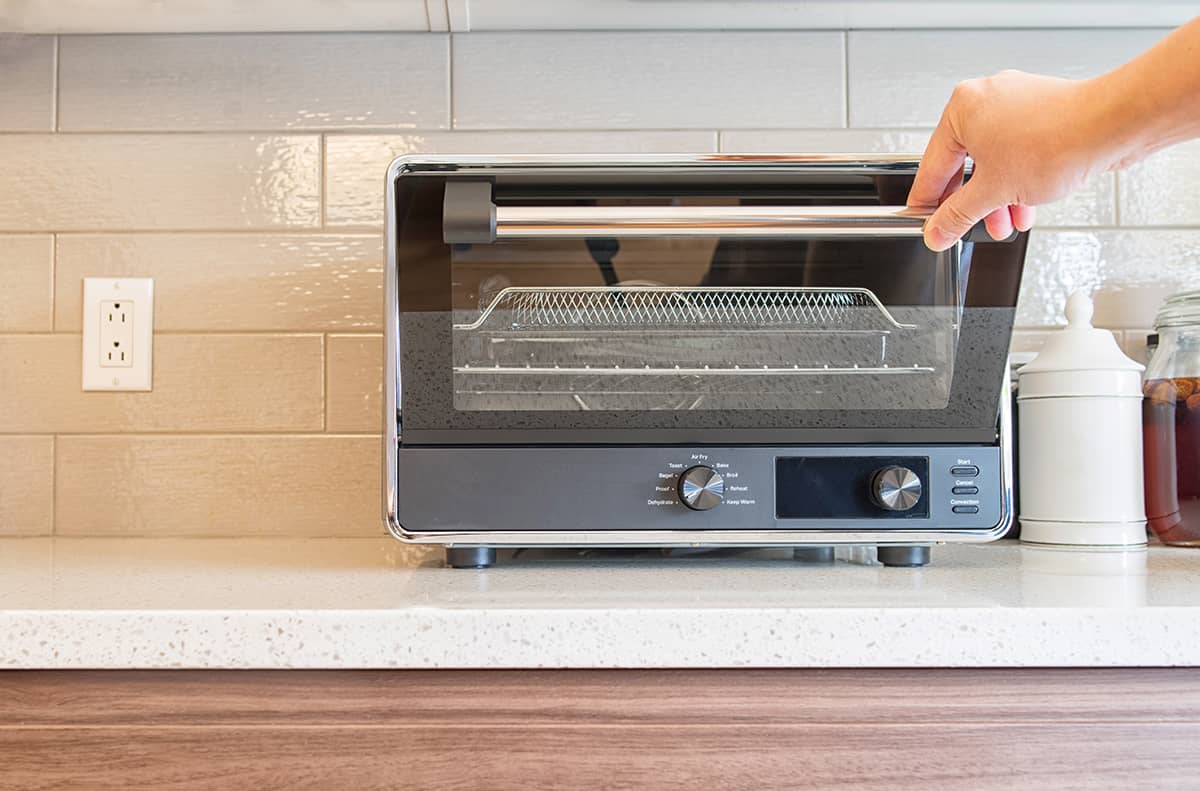
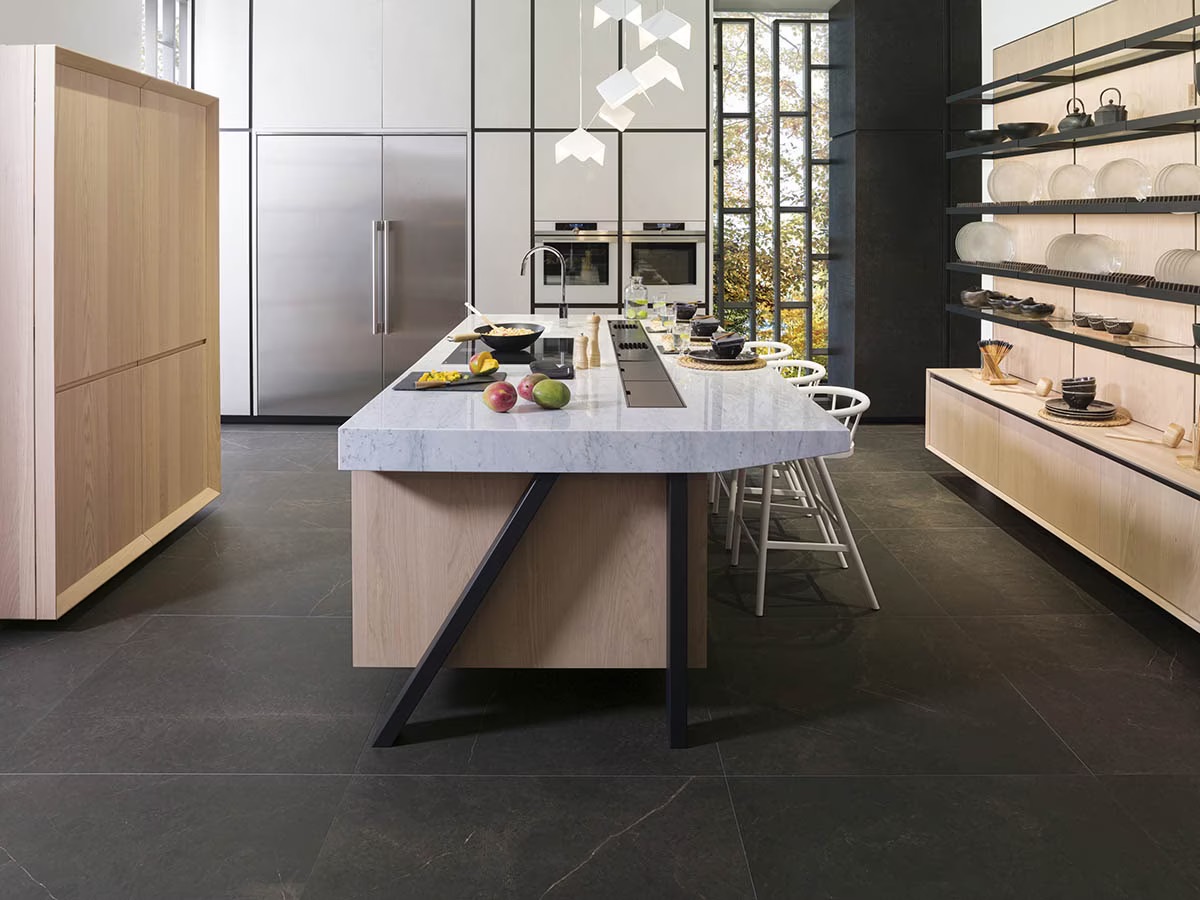
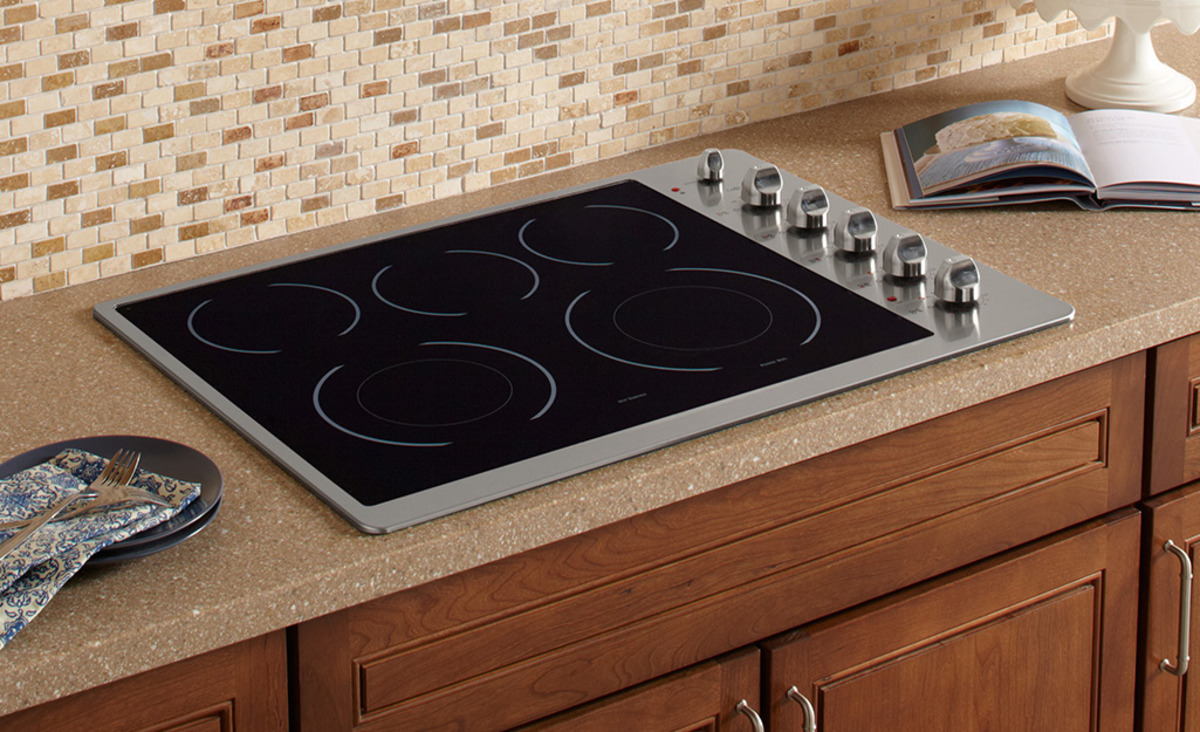
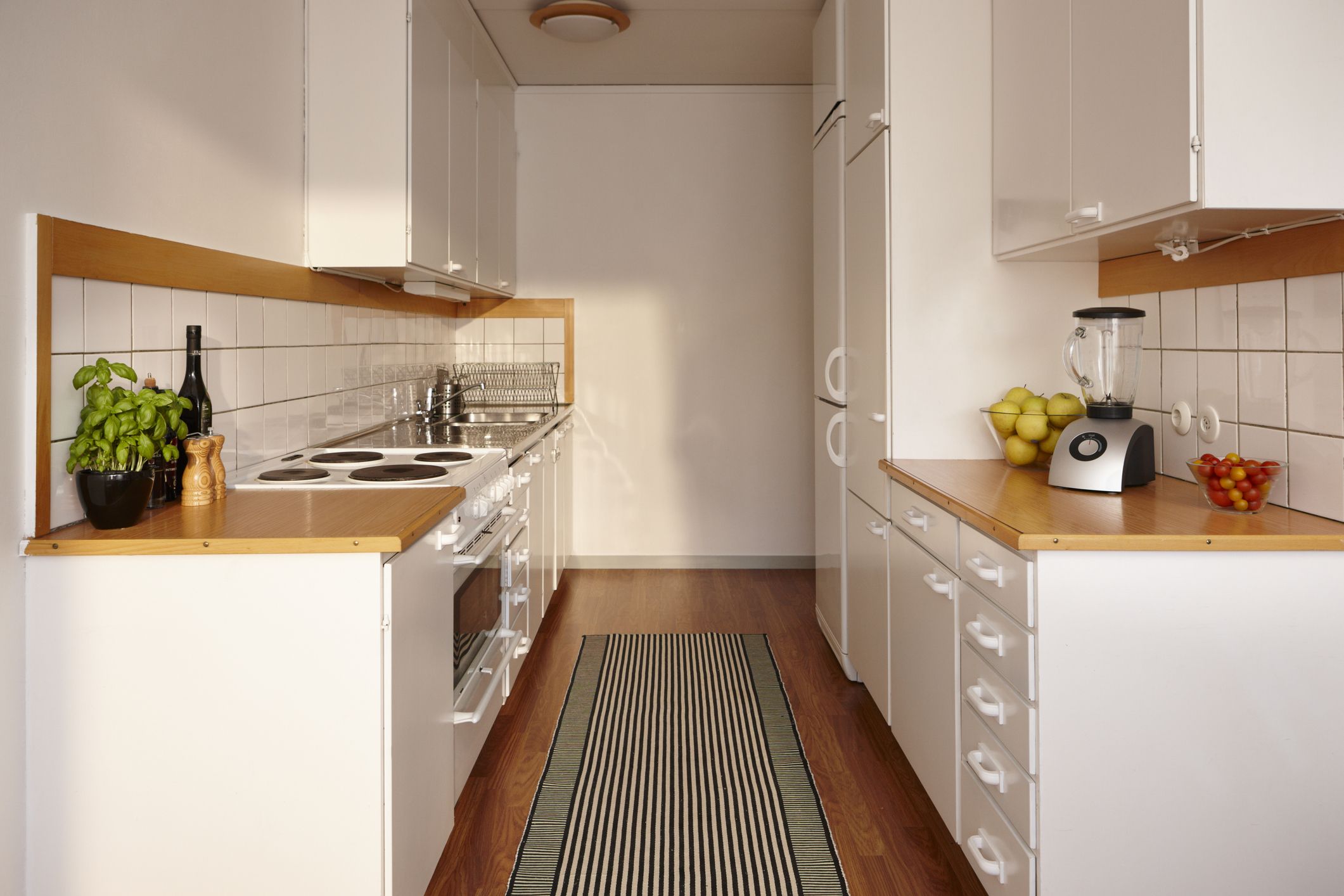
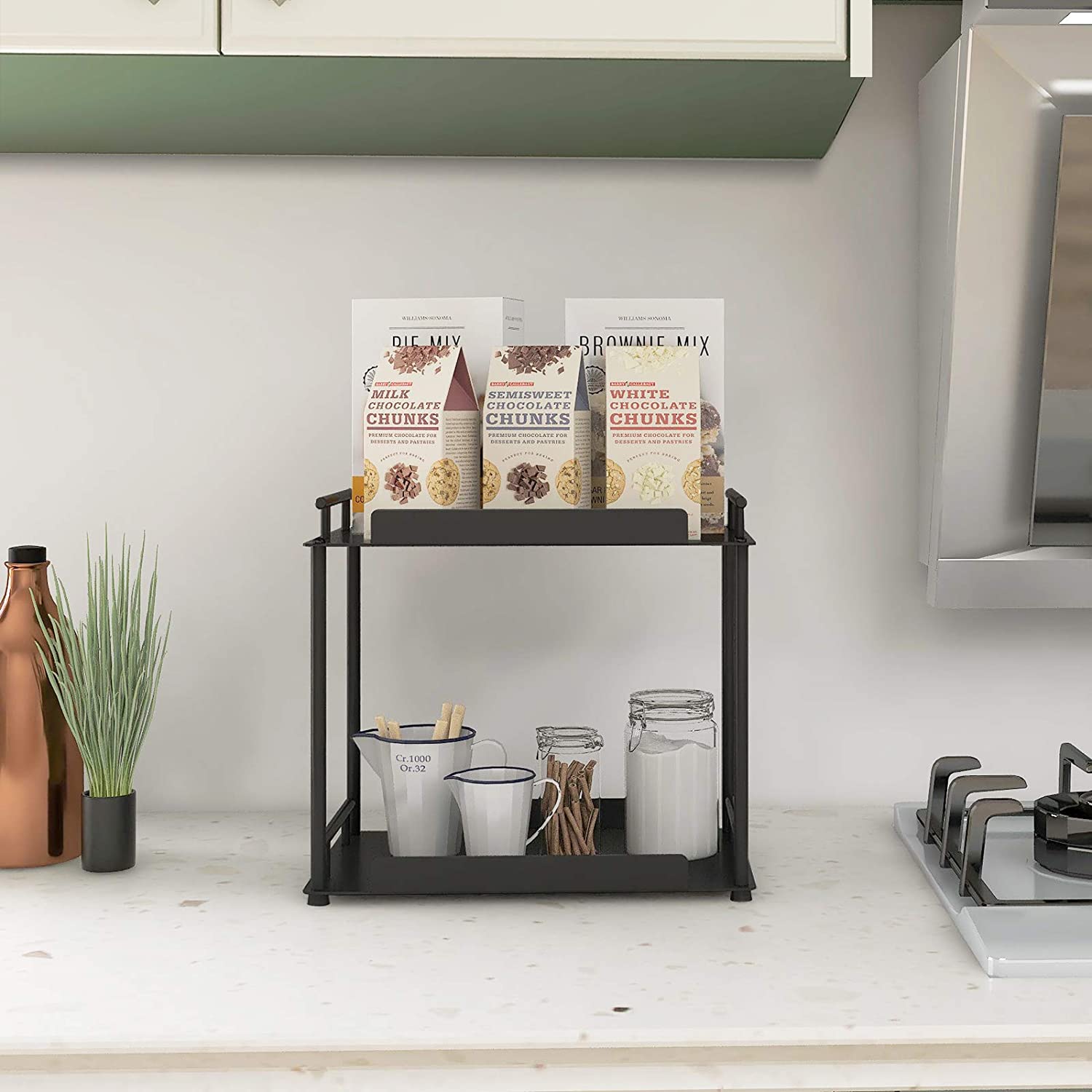

0 thoughts on “How To Pick Countertops For Kitchen”